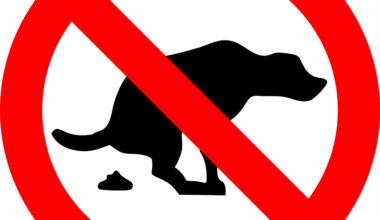Vitamins vs. Supplements: What’s Best for Your Puppy?
When it comes to puppy care, understanding the differences between vitamins and supplements is crucial. Puppies, like human beings, need specific nutrients for healthy growth and development. Vitamins are organic compounds that are essential for metabolic processes. These include Vitamin A for vision, Vitamin D for bone health, and B vitamins for energy metabolism. Supplements, on the other hand, can encompass a broader range of additional nutrients beyond essential vitamins. They may include minerals, herbs, or fatty acids, which can aid in various health issues like coat health, joint care, or digestive support. Determining which your puppy needs requires consulting with a veterinarian who can guide you based on specific health conditions or dietary needs. It’s crucial to select quality products, as not all vitamins and supplements are created equal. Be wary of generic brands and opt for reputable companies that provide research-backed benefits, ensuring your puppy’s health is the top priority. Moreover, excessive supplementation can cause toxicity, with some vitamins accumulating in the body, which is something every pet owner should be aware of.
The Necessity of Vitamins in a Puppy’s Diet
Vitamins play a pivotal role in ensuring your puppy thrives. For instance, Vitamin A is crucial for maintaining healthy skin and eyesight. It promotes proper growth and immunity. Without enough Vitamin A, your puppy may suffer from night blindness or skin conditions. Similarly, B vitamins are vital as they assist with energy production and the formation of red blood cells. A deficiency in these vitamins can lead to anemia and lethargy. Furthermore, Vitamin D aids in calcium absorption, vital for developing strong bones and teeth. Puppies require calcium and phosphorus during their rapid development stages; thus, a balance of these vitamins is essential for avoiding skeletal disorders. When considering puppy diets, whole foods like meats, eggs, and leafy green vegetables are often rich in these vitamins. However, if you suspect your puppy isn’t receiving the necessary nutrients, a vet-approved vitamin supplement can make a significant difference. Always assess the need for vitamins against the backdrop of your puppy’s diet and lifestyle, aiming for a balanced intake that supports their fabulous growth curve.
While vitamins are fundamental, several circumstances necessitate the use of supplements for puppies. For example, natural foods might not always provide complete nutrition due to quality or freshness issues. Some puppies might experience health conditions requiring additional nutrients, outside standard diets. When transitioning to solid foods or encountering allergies, their nutritional balance may be disrupted. Additionally, certain breeds might be predisposed to deficiencies or ailments that call for fortified diets. In such cases, supplements are a lifeline, delivering concentrated doses of essential nutrients to bolster health. Furthermore, the choice of supplements should align with your puppy’s specific needs, including those for joint support, skin and coat health, or digestion. Natural supplements derived from fish oil or spirulina can offer omega-3 fatty acids that help with inflammation and mobility issues. Moreover, probiotics can boost gut health, encouraging a thriving digestive system, which is vital in a puppy’s formative stages. Always engage with the vet to assess any ongoing health issues or conditions; personalized recommendations ensure optimal benefits of supplements to enhance your puppy’s vitality.
Possible Risks of Excessive Supplementation
With the increasing variety of vitamins and supplements on the market for puppies, caution is imperative. Many pet owners may unknowingly administer excessive amounts, believing more is better. However, this approach can lead to toxicities, especially concerning fat-soluble vitamins like A, D, E, and K. For instance, an overdose of Vitamin A can result in serious conditions like liver damage or bone problems. Recognizing the appropriate dosage is imperative in preventing adverse effects from vitamin overconsumption. It’s essential to adhere strictly to the dosage recommendations provided on product labels or those given by veterinary professionals. Besides, some combinations may negatively interact, leading to further complications. Quality matters, so focus on reputable brands that provide comprehensive information on their products. This ensures they have been carefully evaluated for safety and efficacy. Regular veterinary check-ups also play a role in monitoring your puppy’s health and supplementation needs. Moreover, assess your puppy’s health regularly; if behavioral or physical changes occur, re-evaluating dietary intake should be a priority.
It is beneficial to conduct thorough research before introducing vitamins and supplements to your puppy’s routine. Online platforms provide a plethora of products, but navigating through options requires discernment. Look for products with third-party testing, as these are usually vetted for safety, purity, and potency. Understanding what each vitamin and supplement does can be empowering. Read peer-reviewed studies or consult databases dedicated to pet health to ascertain the benefits of specific nutrients. Moreover, recognize that every puppy is unique, with different nutritional needs. What works splendidly for one puppy may not work for another, calling for a tailored approach to their diet. Document any changes you observe when introducing new vitamins or supplements, highlighting improvements or potential side effects. This information can be invaluable for your vet to make informed recommendations moving forward. Engaging with puppy care communities can also offer insights into effective products and experiences from other pet owners. Constant vigilance is key, ensuring that your puppy remains happy and healthy as they grow.
In Conclusion: Choosing Wisely
Ultimately, the decision between vitamins and supplements hinges on your puppy’s individual health needs and dietary habits. Consulting with a veterinarian is paramount to determining the right approach to supporting their growth. Focusing on offering a balanced nutritious diet should always be the primary method of care. Additionally, understanding the distinctions between vitamins and supplements helps parents make informed decisions. Strive for products that do not overwhelm your puppy’s system but instead complement their diet positively. Always remember that successful puppy parenting balances nutrition, exercise, and affection, ensuring your furry friend thrives in a healthy environment. As your puppy matures, their dietary needs will change, moving from puppy food to adult formulations. Staying informed about these transitions can aid in preparing your puppy for adulthood, ensuring they carry forward healthy habits. Regular veterinarian visits, nutrient monitoring, and thorough assessments will keep your puppy on the path to health. Adopting this holistic approach serves to enrich both your and your puppy’s lives in ways immeasurable, maximizing the joy of puppyhood.
By embracing the right vitamins and supplements judiciously, your puppy can lead a vibrant, happy life. It’s essential to continue learning about nutrition as new products and research become available in pet care. Explore various reputable resources, such as veterinary clinics or certified pet nutritionists, who can answer any questions you may have along the way. Cross-referencing information allows for more expansive knowledge about pet health, ultimately benefitting your furry companion. Also, sharing personal discoveries among fellow pet owners can enhance the overall community understanding of what works best for their pups. The internet offers a wealth of information, but discernment is crucial to navigating it successfully. Keep your puppy’s best interests in mind as you introduce any new dietary element. Be proactive in ensuring they receive the required nutrients without compromising their wellbeing. Balancing vitamins and supplements fosters a thriving lifestyle, preparing your puppy for the energetic future they deserve. Continuously evaluate their progress, and cherish these moments, as they contribute to your shared journey together.
As you navigate through puppy care, incorporating proper vitamins and supplements will undoubtedly shape your puppy’s quality of life. Mindfully making these decisions based on seasoned expertise will enhance your puppy’s overall well-being, leading to a long and happy relationship with your four-legged friend.


